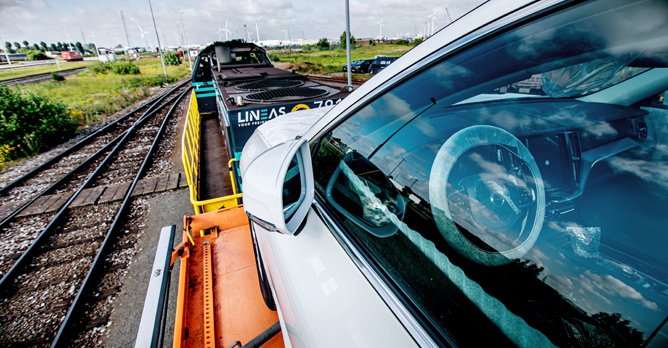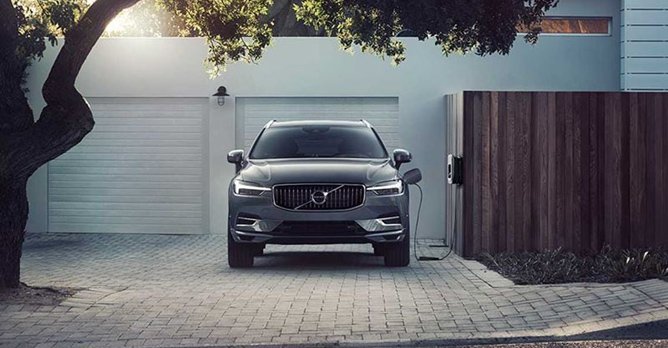Volvo to cut emissions in its logistics network by swapping trucks for trains
17 Mar 2020|706 views
Volvo Cars is significantly cutting carbon emissions in its logistics operations by switching transports between its manufacturing plants and new car depots from trucks to trains.
Especially in Europe, where trucks are still ubiquitous in transporting new cars to distribution depots and retailers in individual markets, the company is in the process of reducing emissions by replacing more and more transport by trucks with rail transport.

Both initiatives form part of the climate action plan that Volvo Cars revealed this year, in which they aim to reduce its lifecycle carbon footprint per car by 40% between 2018 and 2025. This will require a 25% reduction in operational emissions, including logistics.
Volvo Cars' climate action plan represents one of the most ambitious plans in the automotive industry, containing concrete actions in line with the global Paris climate agreement of 2015, which seeks to limit global warming to 1.5 degrees Celsius above pre-industrial levels.
Volvo Cars is also going beyond addressing tailpipe emissions by adopting all-out electrification.
It is looking at tackling carbon emissions across the board in its manufacturing network, as well as in its wider operations, its supply chain and through recycling and reuse of materials.
The company's electrification ambitions are reflected in the recently launched, brand-new Recharge car line. Recharge will be the overarching name for all chargeable Volvo cars with a fully electric or plug-in hybrid powertrain.
Volvo Cars is significantly cutting carbon emissions in its logistics operations by switching transports between its manufacturing plants and new car depots from trucks to trains.
Especially in Europe, where trucks are still ubiquitous in transporting new cars to distribution depots and retailers in individual markets, the company is in the process of reducing emissions by replacing more and more transport by trucks with rail transport.

Both initiatives form part of the climate action plan that Volvo Cars revealed this year, in which they aim to reduce its lifecycle carbon footprint per car by 40% between 2018 and 2025. This will require a 25% reduction in operational emissions, including logistics.
Volvo Cars' climate action plan represents one of the most ambitious plans in the automotive industry, containing concrete actions in line with the global Paris climate agreement of 2015, which seeks to limit global warming to 1.5 degrees Celsius above pre-industrial levels.
Volvo Cars is also going beyond addressing tailpipe emissions by adopting all-out electrification.
It is looking at tackling carbon emissions across the board in its manufacturing network, as well as in its wider operations, its supply chain and through recycling and reuse of materials.
The company's electrification ambitions are reflected in the recently launched, brand-new Recharge car line. Recharge will be the overarching name for all chargeable Volvo cars with a fully electric or plug-in hybrid powertrain.
Latest COE Prices
December 2025 | 1st BIDDING
NEXT TENDER: 17 Dec 2025
CAT A$105,413
CAT B$123,900
CAT C$76,501
CAT E$123,000
View Full Results Thank You For Your Subscription.




















